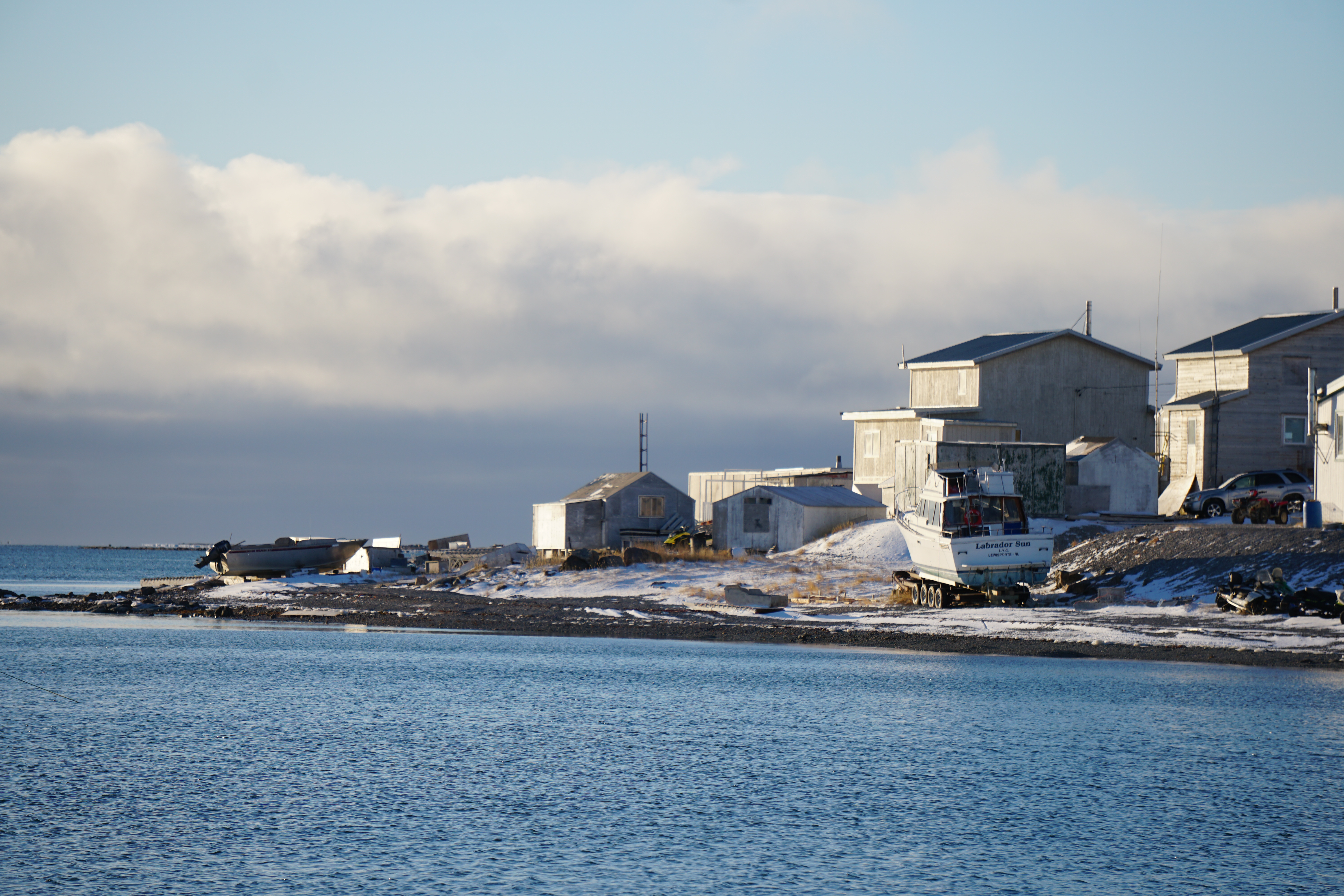Wayfaring the BearWatch Project: Difference between revisions
| Line 43: | Line 43: | ||
My wayfaring approach, as will become clear, does not attempt to formulate a new, alternative, or innovative means of knowledge conciliation across cultural differences, nor does it lead to conclusive take-aways about ethical knowledge conciliation. It instead unsettles fixed ideas about “knowledge” towards a “coming to know”, and instead of “knowledge integration” it performs the idea of “worldly encounters”. | My wayfaring approach, as will become clear, does not attempt to formulate a new, alternative, or innovative means of knowledge conciliation across cultural differences, nor does it lead to conclusive take-aways about ethical knowledge conciliation. It instead unsettles fixed ideas about “knowledge” towards a “coming to know”, and instead of “knowledge integration” it performs the idea of “worldly encounters”. | ||
[[File:DSC00022.jpg|thumb | [[File:DSC00022.jpg|thumb|Two polar bear skulls at George Konana's cabin.]] | ||
<div class="next_choice"> "Keep going' to learn more </div> | <div class="next_choice"> "Keep going' to learn more </div> | ||
Revision as of 20:52, 12 February 2025
Estimated time to follow this cut without detours: 20 minutes (excluding 20 minutes animated graphic documentary.)
The land invites one to move away from anthropocentric tellings - towards narrations of becoming knowledgeable in company with the seasons, snow, ice, wind, lichens, caribou and many more. Such stories leave room for us as researchers, but aren’t about us.
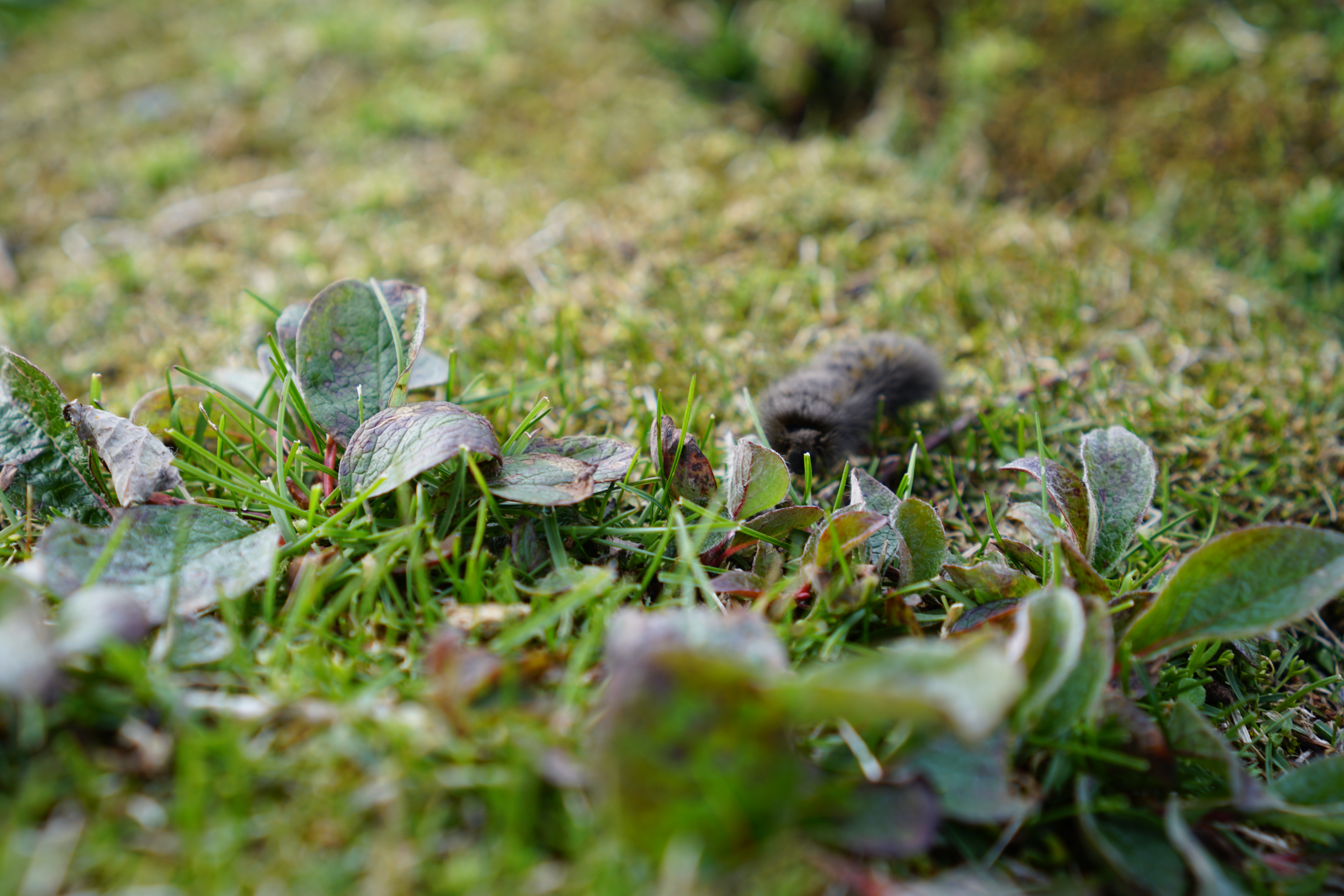
Acknowledgements
An explicit note of acknowledgement for this cut goes out in particular to George Konana, in Gjoa Haven, and Leonard Netser in Coral Harbour. Both men have taken me out on the land, the sea and the ice on multiple occasions between 2020-2023. They patiently took time to introduce me to their land and explained how they found their way in various ways and under multiple conditions. Although they graciously responded to my many questions, I am most grateful to their valuable lessons of guiding me to tag along and just be present for the ride.
Becoming a Wayfarer
My name is Saskia de Wildt. This cut focusses on the challenge of conciliating western sciences and IQ in community-based polar bear monitoring research.
More precisely, it traces the processes of my PhD research as part of a large Genome Canada funded research project called BearWatch.
Within this project I ask the question of what it means to practice knowledge conciliation under guidance of the principles of the ‘Ethical Space of Engagement’[1] and the Inuit Circumpolar Council (ICC) Protocols for Equitable and Ethical Engagement (EEE[2]) rather than based on data-driven needs.
A shift of positioning; from distanced observer or reader to becoming an entangled “subject” – and a shift from operating based on fixed principles, to a practice of ongoing negotiations and ethical encounter.
As you make your way through this knowledge-land-scape, depending on the choices you make, you might start feeling these shifts yourself as you may transform from being a reader of my research, towards becoming a wayfarer alongside my research.
Knowledge Conciliation in Polar Bear Research
The polar bear co-management regime in the Nunavut Settlement Area, is based on the 1993 Nunavut Land Claim Agreement (NLCA), that states that “Inuit must always take part in decisions on wildlife”, while “the guiding principles and concepts of Inuit Qaujimajatuqangit (IQ) are to be described and made an integral part of the management of wildlife and habitat.”
Despite such formalized co-management, tensions remain. Data-driven conservation, management and monitoring of polar bears in Inuit Nunangat- while necessary to address significant data gaps on population trends and a rapidly changing Arctic environment- has also proven itself a challenging environment for the conciliation of different ways of knowing and being.
It centers the unfolding of a particular research project: ‘Bearwatch: Monitoring Impacts of Arctic Climate Change using Polar Bears, Genomics and Traditional Ecological Knowledge’ – hereafter referred to as ‘Bearwatch’.
Excerpts of project reports serve as a guiding cut, while you, I, and multiple others may thread our own corresponding paths alongside it.Wayfaring as a Sensitizing Method
My wayfaring approach, as will become clear, does not attempt to formulate a new, alternative, or innovative means of knowledge conciliation across cultural differences, nor does it lead to conclusive take-aways about ethical knowledge conciliation. It instead unsettles fixed ideas about “knowledge” towards a “coming to know”, and instead of “knowledge integration” it performs the idea of “worldly encounters”.
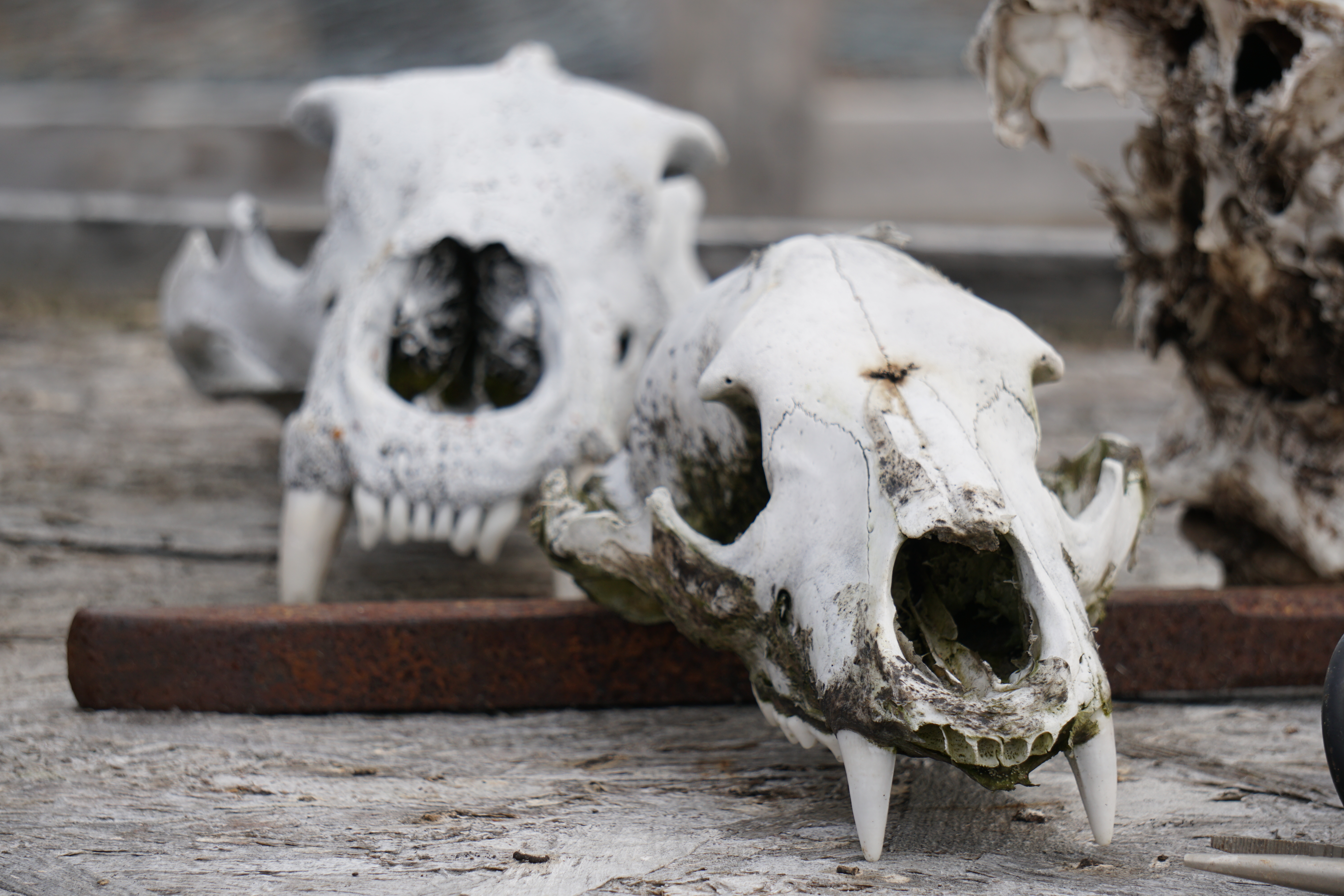
The BearWatch Project
Bearwatch ran between 2015 and 2023, during which it sought to meaningfully engage IQ in its development of a new non-invasive genomic polar bear monitoring toolkit. The project was a collaboration between northern communities in the Nunavut Settlement Region and the Inuvialuit Settlement Region, HTAs in Gjoa Haven and Coral Harbor, the Inuvialuit Game Council, the governments of Nunavut, Northwest Territories, and Yukon, the Canadian Rangers, and researchers and students from multiple universities across Canada and beyond.
Most researchers and policymakers in the field of polar bear science more generally – and on the BearWatch project particularly – are trained in a variety of natural science disciplines of the western academic institute, or they are Inuit knowledge and rights holders. I, myself, am a white, queer, settler-guest researcher from the Netherlands with a background in the applied arts and social sciences, which has required me to negotiate and navigate my own way of meaning making alongside many of the project’s activities.
Decision-making
You now have a choice to make. Will you trace the most straightforward path across the BearWatch project, engaging mostly with the project reports of BearWatch? Or will you start threading your own intra-dependent way alongside the project and me?
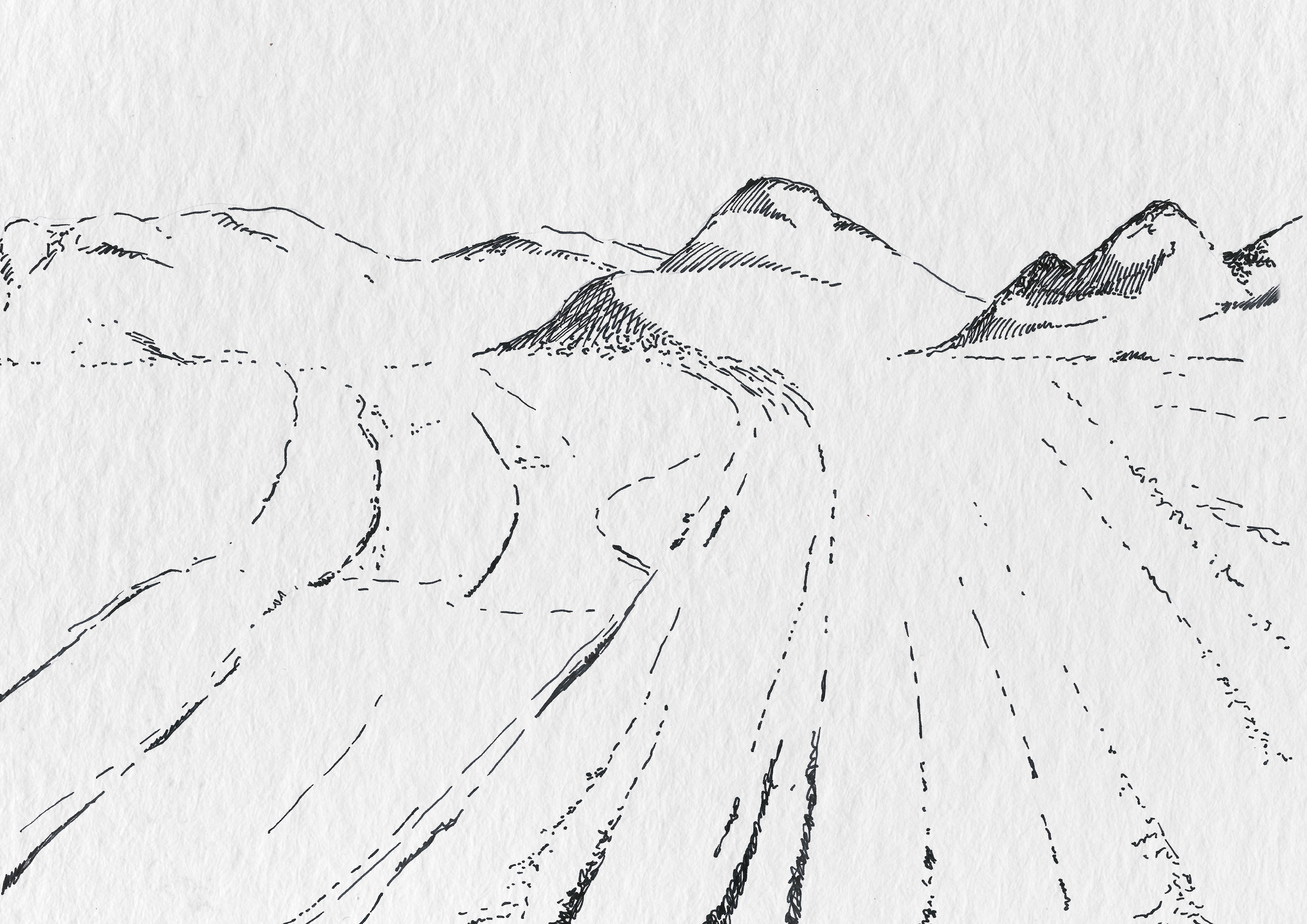
Otherwise, it might be helpful to look up the meaning of “intra” dependency, as opposed to “interdependency” before you keep going.
If you choose to keep following this cut instead, you will jump straight into the BearWatch project- beginning with the TEK workshops that were held in the community of Gjoa Haven in 2019 as to inform a feasibility study on future community-driven polar bear fecal sample collection.Detour: look up the meaning of "intra-dependency"
TEK Workshops
The BearWatch project was designed to include a “Genomics and its Environmental, Economic, Ethical, Legal and Social aspects (GE3LS)” component (BearWatch research proposal, 2016 p.30-31).
Three TEK mapping workshops were co-designed with the HTA of Gjoa Haven, as part of this GE3Ls strategy to ‘identify TEK gaps’ and ‘fill them’. The temporal and spatial polar bear TEK that was collected, was processed and published by Scott Arlidge, who also participated in the project. The TEK that was collected ‘provides a georeferenced knowledge base that displays information on polar bears including harvest sites, bear movement, denning sites, and hunter knowledge areas’ (Arlidge, 2022 p.13). This knowledge is shared in his thesis as i) ‘a historical record of polar bear knowledge for the community of Gjoa Haven’; and ii) ‘as a guide to areas of high polar bear activity for future targeted polar bear monitoring effort’s’ (Arlidge, 2022 p.ii).
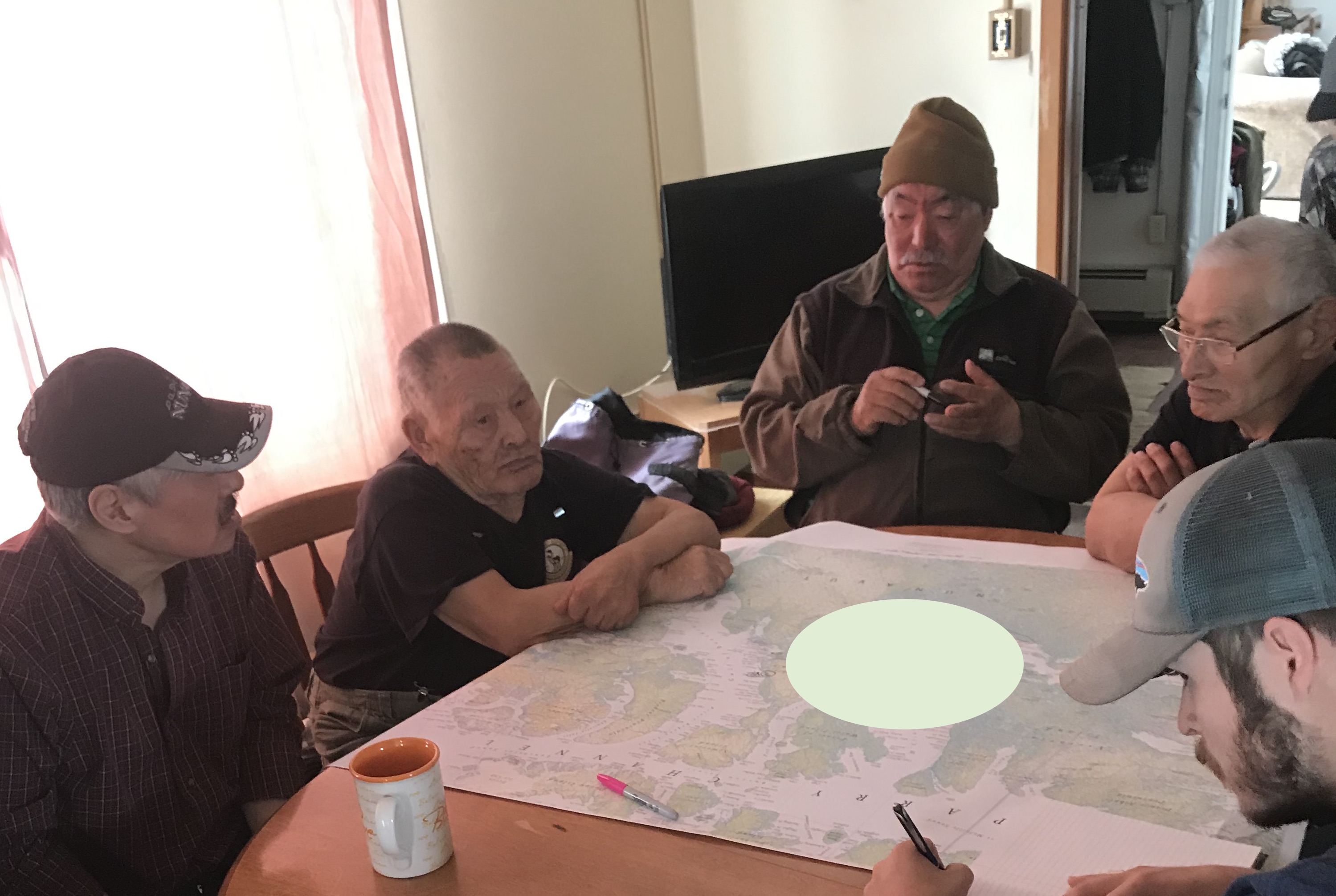
Keep going to attend the impacts workshop. Or,
Detour, to continue your research on GE3LS. Or,
Go check out the "Knowledge Co-production" WrecksiteWrecksite: Knowledge Co-production
Workshops Summer 2019

Two workshops were organized in response to community requests, to record the impacts of polar bear hunting quota reductions on the community.
One workshop was held May 15, 2019 in the evening with 10 participants and one on May 16 in the morning with 11 participants. The workshop questions were co-designed by the BW academic researchers and HTA representatives and were asked in both English and Inuktitut to prompt discussion. The format however remained open-ended, meaning that "off-script" discussions were encouraged during the workshop, and occasionally specific members were asked to participate in answering particular questions because of their connection to the issue, as identified in previous interviews or by other community members.
Both workshops were audio-recorded.
The BearWatch PI's and Gjoa Haven HTA-board want to use these recordings as primary materials for an academic paper.
What would you do if they asked you to write it?
You have just learnt about this project and have not yet set foot into the community. Although you understand that writing “about” other people’s experiences doesn’t exactly sound ethical, the Gjoa Haven HTA wants a publication, so maybe there is no need to complicate things further?
"Stay with the Trouble" and explore in what ways you can contribute, while also keeping in mind how the “Politics of recognition” can complicate such writing practices.
Or,
Choose to not engage further with the community of Gjoa Haven for now.
"Keep going" to trace Cut 3: the unfolding of the BearWatch project, and prepare for your first fieldtrip to Coral Harbour.
Stay with the trouble: The Politics of Recognition
Coral Harbour First Trip 2020
Alongside funding from Genome Canada, the project PI’s also successfully applied to the Crown-Indigenous Relations and Northern Affairs Canada/ World Wildlife Fund to fund ‘traditional knowledge research and a denning survey in Coral Harbour, Nunavut’ (Schedule H, 2020, March 31. This intended study included documenting polar bear TEK in Coral Harbour, surveys of vacated dens by locals to collect a variety of samples and data, and the initiation of a collaborative effort with the high school to train students in land-based surveys.
